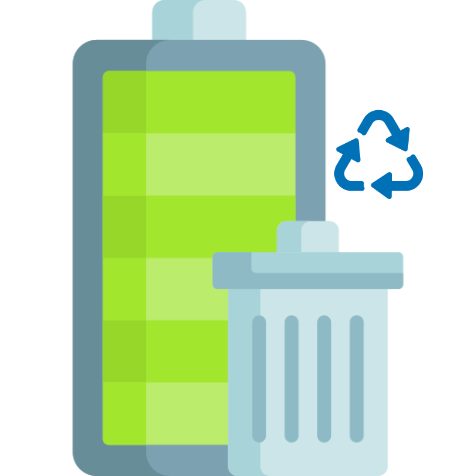Overview
Plastic products play an indispensable role in our lives. From packaging to household items to gadgets, plastic products are everywhere, and their presence is rampant. Every year, India produces almost 5.6 MT of plastic waste, with the majority of being is packaging material. Unfortunately, this remarkably useful product is increasingly posing an unprecedented threat to the environment and human life. With that in mind, the GOI, in association with the Ministry of Environment, Forests, and Climate Change, came up with the Plastic Waste Management Rules, 2022. It is comprehensive legislation that keeps a tab on ever-rising plastic waste (with a major source being packaging items). It requires producers to get registered with the relevant pollution authority and secure an EPR certificate. Once gets registered, the licensee needs to collect, recycle, and dispose of plastic waste as per the prescribed target, which will increase annually. Let’s dig into the EPR certificate for plastic waste and its legalities.:
Underlining the significance of PIBOs in the PWM Rules
The PWM Rules 2022 obligates PIBOs, which stands for Producers, Importers, and Brand Owners, to effectively manage, recycle, and dispose of plastic waste to minimize health and environmental impact. These rules strictly apply to PIBOs, which prominently rely on the use of plastic packaging. The said rules compel PIBOs to abide by Schedule II of PWM Rules to ensure the effective provisioning of plastic waste. PIBOs are mandated to secure EPR registration from the Central Pollution Control Board (CPCB) via an online portal, provided they are functioning in more than two states. Likewise, PIBOs that lack multi-state operation must approach SPCB/PCC for registration purposes. PIBOs are bound to accomplish the EPR targets set by the authority with the assistance of Plastic Waste Processors (PWPs). They must secure a PWP certificate based on the waste threshold processed by PWPs and use such certificates to achieve underlined EPR targets. Any non-compliance w.r.t the authority’s norms or EPR plans shall incur severe penalties, including imposition of environmental compensation.
What exactly PIBOs are required to do?
The first and foremost thing that PIBOs need to undertake is securing the EPR certificate for plastic waste from the CPCB. Post this, they must abide by the following chain of actions:
- Submission of the Action plan with no intangible commitment
- Recycling waste for reuse
- Sorting End-of-life waste and disposing of it accordingly.
- CTeaming up with registered agencies for collection and recovery of the plastic,though it is an optional activity
- Sharing annual returns with the authority as and when required.
- Furnishing proof of certificates (plastic credits)
- Syncing with PROs, which stand for Producer Responsibility Organisation, to meet the collection target.
Category of plastic packaging covered under EPR certificate
- Category I : Category 1 spans the Rigid plastic packaging
- Category II : Category 1 spans a variety of plastic, including single or multilayer flexible packaging, carry bags, plastic sheets & covers, and plastic pouches or sachets.
- Category III : Category III deals with plastic packaging comprising single-layered plastic and one layer of non-plastic material
- Category IV : Category IV is all about compostable plastic carry bags and Plastic sheets for packaging purposes
Documents required for EPR certificate of Plastic Waste Management?
The benefits are as follows:
- Geo-tagged pictures relating to the production area, storage premise, product dispatch area, and machinery room (for PWPs only).
- Company's PAN, GST, and CIN details.
- Importer's IEC (Importer Exporter Code) issued by DGFT.
- Scanned copies concerning authorized persons' signatures.
- DIC Registration (if applicable).
- Process flow diagrams depicting how plastic waste is managed.
- Authorized person's PAN and Aadhar details.
- Covering letter.
- Consents issued by SPCB/PCC for a production facility only.
Guide to obtaining EPR certificate for Plastic Waste management
Those seeking an EPR certificate for Plastic Waste Management can abide by the following steps:
- Step 1: Arrange Applicable Paperwork Before you delve into the online filing, arrange all the applicable paperwork in the format specified by the authority. Make sure the documents are free from any potentially misleading or inaccurate information. Any loophole detected during inspection can lead to application rejection..
- Step 2: Secure login details from the CPCB portal Next, head to the CPCB portal and secure the login credentials. You may have to undergo a brief verification process, such as OTP, for secured authorization.
- Step 3: Application filing and document uploading After registering with the portal, use the login details (received on the registeredemail ID) to get access to the e-form. Depending on your role, the portal will lead you to the apt e-application. Fill out the e-form with legitimate information and upload the document ( as cited in the preceding section)..
- Step 4: Application fee Submission Upon successful submission of relevant paperwork, the portal shall lead you to the payment section, where you can pay the application fee via digital modes.
- Step 5: Application processing/inspection Application for PIBOs with single or two-state operations shall be routed to relevant SPCBs/PCCs on the same portal. Likewise, the application for PIBOs having a multi- state operation will be sent to CPCB for inspection. The submitted paperwork shall undergo rigorous vetting to identify any loophole or error.
- Step 6: Issuance of EPR certificate for plastic wasteThe authority, upon performing successful vetting, which would take around two weeks, shall grant the EPR certificate to the applicant. The rejection may come into effect if the submitted paperwork is flagged for potential error. The certificate shall boast the electronic signature of the concerned official.
Validity, Renewal & Cancellation
- A new registration comes with a one-year validity. The renewed license shall stay valid for three years..
- EPR certificate should be renewed four months from the expiration date.
- The certificate may confront temporary suspension and even rejection if the authority comes across any discrepancies in the document.
- Include utility bills for the office space address proof.




.png)






